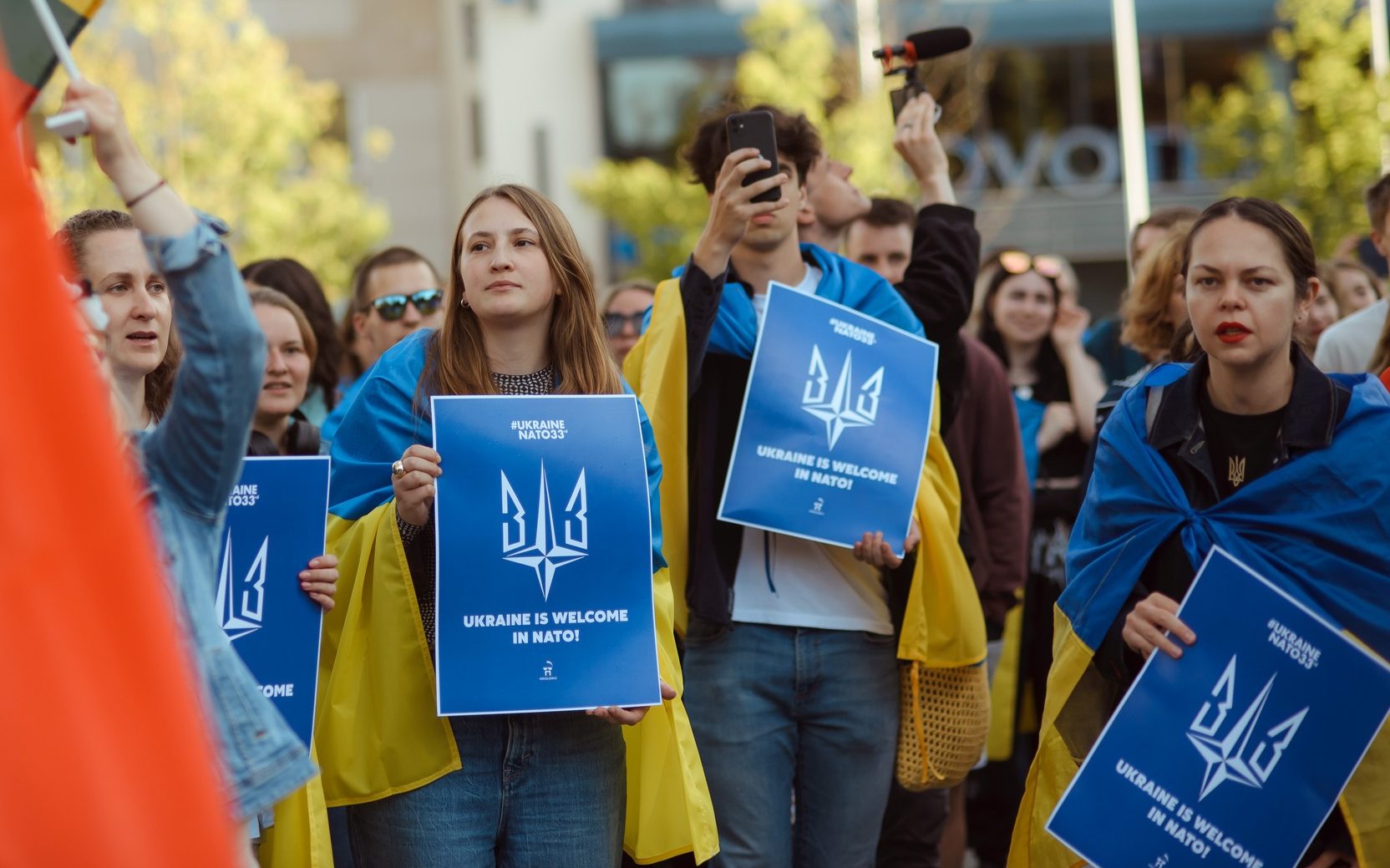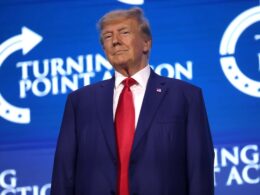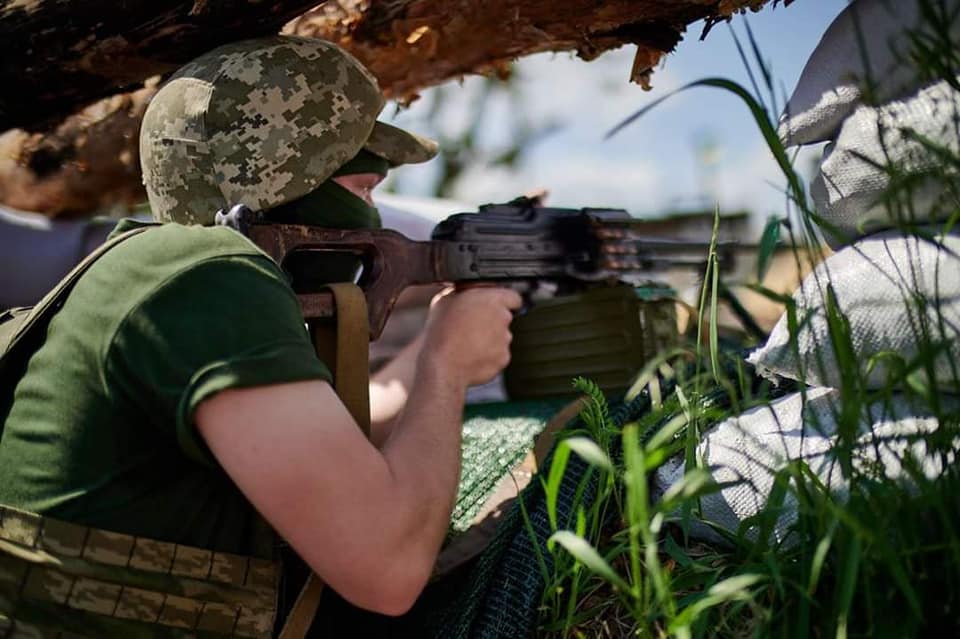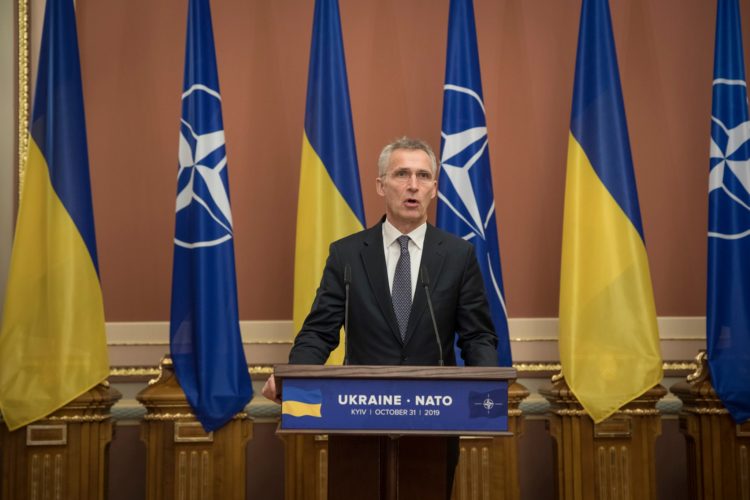Imagine we observe someone in the process of drowning. We urgently row over to the person and grab hold of his/her hand, stopping him/her from drowning. We did something.
However, unless we pull the person into the boat, he/she will still die. It is just a matter of time before the person freezes to death. The victim did not perish at once because we did something but died eventually because we failed to do what was needed.
That’s what happened at the Vilnius Summit yesterday.
We just told the one grasping our hand that we would not pull him/her out of the water before he/she had dried up. We did, however, offer him/her words of comfort and future promises.
NATO failed to invite Ukraine into the Alliance because it is at war with Russia. The Estonian Prime minister was more frank: The decision was made out of fear for Russia.
While the accession process will proceed quicker than previously assumed, it will still not happen before Russia stops waging war against Ukraine. As I have previously stressed, this caveat serves as a motivation for Russia to continue the war. As long as the war continues – on land, at sea, and in the air; by conventional or hybrid means; low or high intensity – Ukraine will be denied NATO membership.
More crucially, as long as Ukraine remains outside the Alliance, it will lack the tools it needs to defeat Russia. It will lack the Sea and Air Power required to break the maritime embargo and establish air control. The Alliance is the only party that can provide these means at the scale and scope needed to succeed. The decision not to invite Ukraine to become a NATO member anytime soon means that the key tools are not forthcoming.
Some of the key points from the Vilnius Summit Communiqué:
“We reaffirm our commitment to NATO’s Open-Door policy and to Article 10 of the Washington Treaty.” [The door will, however, remain closed until Peace has been restored - HPM]
“The Russian Federation is the most significant and direct threat to Allies’ security and to peace and stability in the Euro-Atlantic area.” [Ukraine is, however, the only country countering Russian aggressive foreign policy and its attempt to restore its sphere of interest over Eastern Europe - HPM]
“Russia bears full responsibility for its illegal, unjustifiable, and unprovoked war of aggression against Ukraine, which has gravely undermined Euro-Atlantic and global security and for which it must be held fully accountable.” [Nazi Germany was defeated and, therefore, held accountable after WW2. NATO, in contrast, stresses that it does not seek confrontation and poses no threat to Russia - HPM]
“Russia’s war has had a profound impact on the environment, nuclear safety, energy and food security, the global economy, and the welfare of billions of people around the world.” [The Alliance fails to list the political fallout of the ripple effects from the war, including the rise of populistic political parties as a risk to Alliance cohesion. It does not describe an effective counterstrategy to alleviate the global impacts of the war - HPM]
“We welcome and support President Zelenskyy’s commitment in setting out the principles for such a peace through his Peace Formula.” [The Alliance support Zelensky’s commitment, not his Peace Formula - HPM]
“We are committed to achieving a just and lasting peace that upholds the principles of the UN Charter, in particular sovereignty, territorial integrity and independence. We underline that this cannot be realised without Russia’s complete and unconditional withdrawal.” [The commitment to achieving a just and lasting peace does not include peace enforcement or military intervention. It is based on the hope that Russia will see sense and withdraw of its own accord - HPM]
“We remain steadfast in our commitment to further step up political and practical support to Ukraine as it continues to defend its independence, sovereignty, and territorial integrity within its internationally recognised borders, and will continue our support for as long as it takes.” [As long as it takes is an open-ended commitment that does not necessarily mean support until victory - HPM]
“We fully support Ukraine’s right to choose its own security arrangements. Ukraine’s future is in NATO. We reaffirm the commitment we made at the 2008 Summit in Bucharest that Ukraine will become a member of NATO, and today we recognise that Ukraine’s path to full Euro-Atlantic integration has moved beyond the need for the Membership Action Plan.” [Making the accession process easier is potentially a positive outcome. The decision will, however, have no impact whatsoever until the war is ended. As long as Russia is allowed to continue the war, Ukrainian statehood and nation will be at risk. The decision only serves to motivate Russia to uphold its efforts - HPM]
“We will be in a position to extend an invitation to Ukraine to join the Alliance when Allies agree and conditions are met.” [The conditions are partly outlined in the Annual National Programme (ANP). The main condition, however, is inevitably linked to the war - HPM]
“To support Ukraine’s further integration with NATO, today we have agreed a substantial package of expanded political and practical support. We have decided to establish the NATO-Ukraine Council, a new joint body where Allies and Ukraine sit as equal members to advance political dialogue, engagement, cooperation, and Ukraine’s Euro-Atlantic aspirations for membership in NATO. It will provide for joint consultations, decision-making, and activities, and will also serve as a crisis consultation mechanism between NATO and Ukraine.” [Recognising that NATO does not see itself as a part of the war, that all practical support is coordinated outside the framework of NATO, and that the Alliance is limited to providing non-military support only, the benefits of the NATO-Ukraine Council are not palpable - HPM]
“The continued delivery of urgently needed non-lethal assistance to Ukraine by NATO through the Comprehensive Assistance Package (CAP) remains a priority.” [This is a sign of weakness, not strength - HPM]
“We condemn Russia’s announced intention to deploy nuclear weapons and nuclear-capable systems on Belarusian territory, which further demonstrates how Russia’s repeated actions undermine strategic stability and overall security in the Euro-Atlantic area. We condemn Russia’s irresponsible nuclear rhetoric and coercive nuclear signalling. We recall the Joint Statement of the Leaders of the Five Nuclear Weapons States issued on 3 January 2022 on Preventing Nuclear War and Avoiding Arms Races. We call on Russia to recommit – in words and deeds – to the principles enshrined in that Statement.” [NATO fails to address the situation around Zaporizhzhia Nuclear Power Plant – including the alleged mining of the NPP - or the fact that Russia is waging a war between 15 nuclear reactors across Ukraine - HPM]
“Allies will continue to work closely together to address the threats and challenges posed by Russia and reiterate that any use of Chemical, Biological, Radiological or Nuclear weapons by Russia would be met with severe consequences.” [Zaporizhzhia Nuclear Power Plant – including the alleged mining of the NPP – should have been included in the warning. The fact that it is not, is potentially another indication of an Alliance failing to truly commit to solving the global challenges resulting from the war - HPM]
“Russia has intensified its hybrid actions against NATO Allies and partners, including through proxies. This includes interference in democratic processes, political and economic coercion, widespread disinformation campaigns, malicious cyber activities, and illegal and disruptive activities of Russian intelligence services. We are enhancing the tools at our disposal to counter Russian hybrid actions and will ensure that the Alliance and Allies are prepared to deter and defend against hybrid attacks.” [According to the EU Parliament, Europe is exposed to a hybrid war. NATO, in contrast, only acknowledges hybrid actions. The latter can best be translated into single events that are not seen as a part of a broader confrontation (in contrast to the EU assessment). Its failure to acknowledge the Russian Hybrid War is a signal of weakness: An Alliance being deterred by Russia - HPM]
“We categorically reject and condemn terrorism in the strongest possible terms. Countering terrorism in all its forms and manifestations is essential to our collective defence. NATO’s role in the fight against terrorism contributes to all three core tasks of the Alliance and is integral to the Alliance’s 360-degree approach to deterrence and defence.” [NATO does not, however, recognise Russia as a state sponsoring terrorism. European Parliament has, in contrast, declared Russia to be a state sponsor of terrorism. Several NATO member states (e.g. Lithuania, Latvia, Estonia and Poland) have also designated Russia as a state sponsor of terrorism - HPM]
“Consistent with our obligations under Article 3 of the Washington Treaty, we make an enduring commitment to invest at least 2% of our Gross Domestic Product (GDP) annually on defence. We do so recognising more is needed urgently to sustainably meet our commitments as NATO Allies, including to fulfil longstanding major equipment requirements and the NATO Capability Targets, to resource NATO’s new defence plans and force model, as well as to contribute to NATO operations, missions and activities. We affirm that in many cases, expenditure beyond 2% of GDP will be needed in order to remedy existing shortfalls and meet the requirements across all domains arising from a more contested security order. […] To have the necessary capabilities, the Alliance requires a strong and capable defence industry, with resilient supply chains. A strong defence industry across the Alliance, including a stronger defence industry in Europe and greater defence industrial cooperation within Europe and across the Atlantic, remains essential for delivering the required capabilities.” [The text underlines some of NATO’s structural problems after 3 decades of cutbacks, streamlining and underfinancing of the security and defence sector. It helps explain NATO’s reluctance to uphold its commitment to stop ongoing conflicts where they affect Alliance security (as laid down in its 2010 Strategic concept) - HPM; underlines mine.]
“In response to a radically changed security environment, we are strengthening NATO’s collective defence, against all threats, from all directions. We cannot discount the possibility of an attack against Allies’ sovereignty and territorial integrity.” [ME: This is in line with its 2022 Strategic Concept, which also states that the Euro-Atlantic area is no longer not at peace - HPM]
Does NATO work?
The answer to the question very much depends on how one chooses to describe the war. If it is described as a Russia – Ukraine war, the Alliance is a success story.
It is still ensuring transatlantic security, stability, and prosperity. It is effectively responding to a radically changed security environment. NATO’s collective defense is being strengthened against all threats and from all directions. It is establishing a new generation of regional defense plans; strengthening NATO’s command and control; improving readiness, preparedness, and interoperability; putting in place additional robust in-place combat-ready forces on NATO’s Eastern Flank; and more.
This picture, however, does not match the actual security situation.
The Euro-Atlantic area is no longer at peace. The Russian Federation is seen as the most significant and direct threat to the Allies’ security, peace, and stability in the Euro-Atlantic area. NATO acknowledges Russia’s military potential and aggressive foreign policy. Despite its massive losses in Ukraine, its Air and Sea Power is left more or less intact. Its Land Forces are battle-hardened and experienced. While it will take decades to reform its fundamental flaws, it is inevitable making lessons learned. It is already improving its military capabilities.
It points out that Russia has intensified its hybrid actions against NATO Allies and partners, falling short of acknowledging that Russia is waging a Hybrid War against the Alliance and its member states. The EU Parliament recognized the fact nearly two years ago. Most of NATO’s East-European member states are, consequently, already “defending themselves” in Ukraine in the spirit of the Alliance's late strategic concept. They are providing defense support at an unprecedented level compared to their GDP. Several have openly argued for NATO to do more given a clear and present threat.
The Alliance acknowledges that Russian aggression has global consequences. Russia’s war has profoundly impacted the environment, nuclear safety, energy and food security, the global economy, and the welfare of billions of people worldwide. It fails, however, to highlight the political costs. Far-right parties are on the rise, potentially changing the political landscape across Europe and detrimental to transatlantic unity.
“Look around Europe right now - north, south, east and west - and you see far-right parties of different flavours - nostalgic nationalist, populist nationalist, ultra-conservative with neo-fascist roots and more - enjoying a notable resurgence,”aq BBC reports.'
The Alliance itself acknowledges that an attack against Allies’ sovereignty and territorial integrity cannot be ruled out. Crucially, the Head of the NATO Military Committee, Rob Bauer, admits that it will take time to generate more military power and establish the required infrastructure and logistics in Europe. He highlights that Ukraine’s defensive battle, however, provides the Alliance with the time needed to strengthen its collective defense.
NATO’s success depends upon the one country that is fighting Russia and, therefore, ironically, cannot become a NATO member.
Equally important, NATO stresses that the member states urgently need to invest more in security and defense to close short-term capability gaps. The defense industries are still unable to meet the increased demands for the output of weapons and ammunition. Western prosperity is suffering from the “tsunami of ripple effects from the war. Stability is slowly being challenged by a changing political landscape and increased right-wing, nationalistic political power.
How does this translate?
If the war was described as a broader confrontation between Russia and the West, in which Ukraine is only an objective in a broader strategy, the Alliance is falling short of expectations.
Luckily, the Alliance is being “saved” by the very same country it is refusing to “save” (yet). NATO has, however, committed to continuing to support Ukraine’s fight for its right to exist.
Ironically, if the West had described the war as what it is – a Russian-instigated broader confrontation with the US and Europe – accepting Ukraine as a NATO member would have been a matter of urgency.
Ukrainian NATO membership would have been seen as a tremendous benefit instead of a risk. Military power – experienced, battle-hardened, and brave soldiers - would have been seen as assets.
What could have been a historical NATO Summit failed to do what was needed. Ukraine is still fighting for its right to exist - while simultaneously protecting European security and stability - alone. It will continue to suffer Russian atrocities and destruction.
NATO is not yet ready to defend the one country that protects European security and stability.
Related:
- Norway to provide Ukraine with 2 NASAMS launchers and a thousand drones
- Instead of inviting Ukraine to membership, Alliance to launch NATO-Ukraine Council
- Framework for Ukraine’s security guarantees: main points of G7’s declaration
- G7 nations establish Ukraine’s security guarantee framework at Vilnius NATO summit
- Zelenskyy: invitation to NATO doesn’t mean membership
- Coalition to train Ukrainian pilots on F16s officially launched during NATO summit; no planes pledged yet





